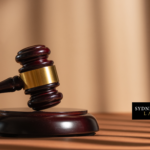The Offence of Causing Grievous Bodily Harm By Misconduct in New South Wales

A man has been charged over a high-speed crash that killed two young boys and left a young girl with serious injuries in Sydney’s south last Friday night.
Friday night along The Grand Parade in Monterey.
According to police, at around 9.50pm on 25 August 2023 the 33-year old driver lost control of his Subaru WR sports car along the Grand Parade in Monterey causing the vehicle to cross the median strip, flip over and crash into a tree in the suburban neighbourhood.
The driver’s two nephews. aged 9 and 10, who were in the vehicle were taken to Sydney Children’s Hospital, but tragically died a short time later.
The driver and his nine-year old young daughter, who was in the front passenger seat survived the crash but were seriously injured. She girl is reported have multiple injuries and is in a serious but stable condition.
The man was charged in hospital around 4pm the next day with two counts of two counts of dangerous driving causing death over the deaths of his nephews, and one count of causing grievous bodily harm by misconduct over injuries sustained by his daughter.
Police say they are investigating the possibility the driver was street racing.
“It is a particularly nasty crash where two innocent young children have lost their lives”, Detective Inspector Jason Hogan told the media.
“We’ll be in constant contact with all members of the family to ensure their welfare and that they’re kept abreast of the investigation as it unfolds.”
The offence of causing grievous bodily harm by misconduct
Causing grievous bodily harm by way of an unlawful or negligent act or omission is an offence under section 54 of the Crimes Act 1900 (NSW) which carries a maximum penalty of 2 years in prison.
To establish the offence, the prosecution must prove beyond reasonable doubt that:
- You caused grievous bodily harm to another person, and
- You did so by an unlawful or negligent act or omission.
The terms ‘unlawful’ and ‘negligent’ are not defined by the legislation.
However, the courts have found that an unlawful act must be a “dangerous act”, and that a ‘negligent act’ is one that exhibits “such a high degree of disregard for the life and safety of others as to be regarded as a crime against the community generally”.
This is a higher test than that which applies to traffic offences, such as negligent driving.
Legal defences
There are a number of legal defences that can apply to the offence of causing grievous bodily harm by misconduct, which include:
- Necessity,
- Duress,
- Automatism, and
- Self-defence.
In the event you are able to raise evidence of any such defence, the onus then shifts to the prosecution to prove beyond a reasonable doubt that the defence does not apply in your case.
If the prosecution is unable to discharge this onus of proof, you are entitled to an acquittal; in other words, a verdict of not guilty.
Going to court for an offence involving GBH?
If you are going to court for an offence that involves allegations of causing grievous bodily harm, call Sydney Criminal Lawyers anytime on (02) 9261 888 to arrange a free conference with an experienced defence lawyer who will explain the law, advise you of your options and the best way forward, and fight for the optimal.







